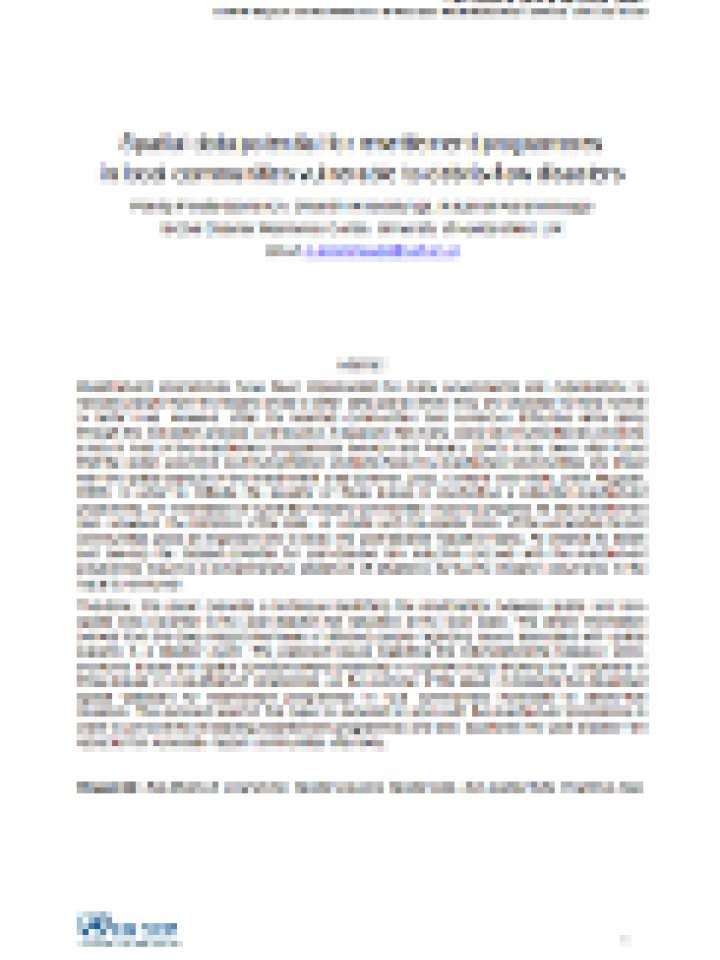Spatial data potential for resettlement programmes in local communities vulnerable to debris-flow disasters
This paper presents a technique identifying the relationships between spatial and non-spatial data essential to the post- disaster risk reduction at the local scale. The obtain information derives from the deep insight interviews of affected people regarding issues associated with spatial aspects in a disaster event. The explored issues regarding the interrelationship between socio-economic issues and spatial conditions are presented in cognitive maps showing the complexity of those issues in a resettlement programme.
As the outcome of the paper, it presents the developed spatial database for resettlement programmes in local communities vulnerable to debris-flow disasters. The explored result of this paper is expected to apply with the resettlement programme in order to prevent the misleading resettlement programmes and also accelerate the post-disaster risk reduction for vulnerable hazard communities effectively.
Explore further
